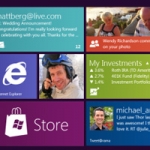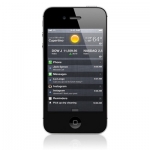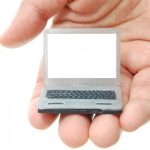It seems that almost everyone owns a smartphone these days, and with smartphones come a multitude of apps. Mobile applications are the driving force behind the world's largest computing ecosystems. Consequently, the question arises, "Is it necessary for my business to have a mobile app?" Whether this is a wise decision depends on your unique business objectives, target audience, and available resources. Let’s explore the advantages and disadvantages of developing a mobile app for your business.
Directive Blogs
Mobile utilization in business has been on the rise for quite some time and today’s business has to stop and confront the issues that come along with it before they become problems. Like any technology that people have come to rely on outside of their job, a business’ first consideration is how to make use of it for business as well. This month, we thought we would take a look at some of the pain points organizations can experience when managing their mobile devices.
Technology gets better and more efficient over time, and smartphones are one of today’s standout examples. Although their growth has stagnated a bit in recent years, it’s no small thing to say that smartphone innovation has really taken off, offering extremely fast processors, data storage in the cloud, and so much more. Let’s go over what you might look at when you purchase a new smartphone.
Mobile devices have changed the world. They’ve definitely changed the way people do business. The prevailing sentiment is smartphone innovation has stagnated a bit over the past few years as most of the flagship smartphones are using extremely fast processors, data storage has moved to the cloud, and many other factors. Just look at the new iPhone, which traditionally looks just like the last iPhone. Today, we’ll take a look at what you need to know when buying your new phone.
Windows 8? Doesn't it feel like Windows 7 just came out? Windows 7 isn't being replaced anytime soon; the latest operating system by Microsoft hasn't even been out for two years, but that doesn't mean Microsoft isn't cooking up their next incarnation. Microsoft has always kept small businesses in mind as well as the residential consumer, so will Windows 8 stick with the same trend?
The mobile smart phone market is certainly a healthy one, and powerful devices are getting into more hands (for both consumers and businesses). There are a few great selections to choose from; RIM's BlackBerry, Microsoft's Windows 7, Google's Android OS, and Apple's iPhone. The latest incarnation of the Apple iPhone hits store shelves today, although from first glance it looks the same as the previous iPhone 4. Let's take a look at some of the differences.
We've been talking a bit about the benefits of going mobile, especially for business owners who want to get more done. One of the best benefits of a laptop computer is portability, which leads into its greatest weakness; it's easy to steal. According to the FBI, over 1 million laptops are stolen each year. If you are using your laptop for business, you'll want to take action ahead of time and employ some protective countermeasures to keep your business safe. We'll even go over some ways you can recover your stolen laptop.
Ever since the mid-1990s employees have been taking advantage of personal gadgets to help them get work done faster. Remember the PDAs and Palm Pilots from a decade and a half ago? Even though many companies weren't quick to establish policies to protect corporate data, tech savvy users were able to sync contacts, schedules, email, and company files to their mobile device. These days, mobile devices are in the hands of many more users, but there are ways to provide security without sacrificing your employees rights to their personal device.
As technology gets more advanced, more of it can get crammed into tinier spaces. Mobile devices used to be heavy, clunky items that could just barely get the job done; they just didn't have the oomph that your desktop workstation had. Today business owners are adopting portable powerhouses like tablets and high-end smart phones to stay connected, but for those on the go often, a laptop or netbook is often a good way to go as well. The Laptop/Netbook debate has gone on since Netbooks first emerged on the market, so let's take a look at the benefits of both.
Microsoft Office still holds a very strong position in the small business world despite some serious competition from Google, who boasts having their software package hosted online. The latest incarnation of the Microsoft Office suite, named Office 365, is designed to rival Google's offering. Today we're going to talk about Microsoft's hosted productivity software and see what the pros and cons are for small businesses.
Small business owners are discovering they don't need to be chained to their desk to use their computer, and are finding it much easier to be productive with the ability to take their workstation with them where ever they go. The concept isn't new, but the trend hasn't caught on for a lot of small businesses. Business owners who have ditched their desktop for a laptop have a whole world of benefits. Let's take a look at what some of those benefits are.
We're in an interesting era. Consumer electronics have been changing the way we communicate, socialize, and get things done. We've all experienced a recent huge evolution in the communication world with the explosion of mobile phones, with more than 4.6 billion mobile subscribers worldwide. Our technology is getting smaller and much more capable, but does that mean we'll be moving away from the typical computer-and-desk to get most of our work done?
Laptops and Netbooks boast portability, but many laptop users find that they need to take their power cables with them if they want their device to run for more than a couple hours. While older laptops are typically less efficient, it also isn't uncommon for the batteries to wear down over years of use. Sure, you can purchase a new (or bigger) battery, but let's go over a few ways you can improve the battery life on your laptop.
Believe it or not, IT companies like DirectiveSHORT work a lot like other businesses. We have many of the same needs in our business; from accounting to organizing data to marketing ourselves. As an IT company, yes, we can manage your workstations, servers, and network, but there are other solutions we have up our sleeves that our clients can take advantage of, that just make sense for an IT company to provide, no matter what.
USB thumb drives are fantastic. Small, portable, fast, and highly compatible; these devices make it easy to transfer files and documents from one place to another. If you are burning the midnight oil working on a presentation or document from home, a thumb drive is a fast, cheap solution for grabbing those files and taking them from one device to another. Of course, there are plenty of other alternate ways to move files that are even easier and even more fool proof (how many of you have lost a thumb drive or let one go through the wash?), so the thumb drive has been becoming less popular for businesses. If you hate to see perfectly good technology go to waste, check out these 3 tricks that give new life to your old thumb drive.
Today’s business environment is no longer just a drab gray office setting filled with workstations lining the wall. The office is the coffee shop across the street, or the airport lobby while you’re waiting for your plane to arrive. It’s the client’s office while you’re out on a business trip, or the venue for a business conference where you make valuable connections and exchange contact information. The office has gone mobile, and your business needs to adapt to this change.
Mobile technology is allowing businesses to make great strides in the way that they conduct their operations, but one of the key reasons why it has been so helpful is that it decreases their costs considerably. Thanks to developments in the way that mobile technology works, it can be fit into pretty much any business model, all the while improving your return on investment for your expensive technology solutions.
Telecommuting (also known as working remotely) is where some or all of your staff have the flexibility to work in the location of their choosing (and in some cases, the hours that they choose). Not to be confused with freelancing, telecommuters are dedicated employees who work under a management style geared towards the final results (as opposed to how the work gets done). While telecommuting isn't for everybody, it is often practiced. Microsoft is well known for having certain positions where the employee spends most of their day in a coffee shop working remotely, and that trend certainly doesn't stop with the big M.
It's more likely than you think. This month, video advertisements will be showing up for the first time ever in traditional paper magazines.













